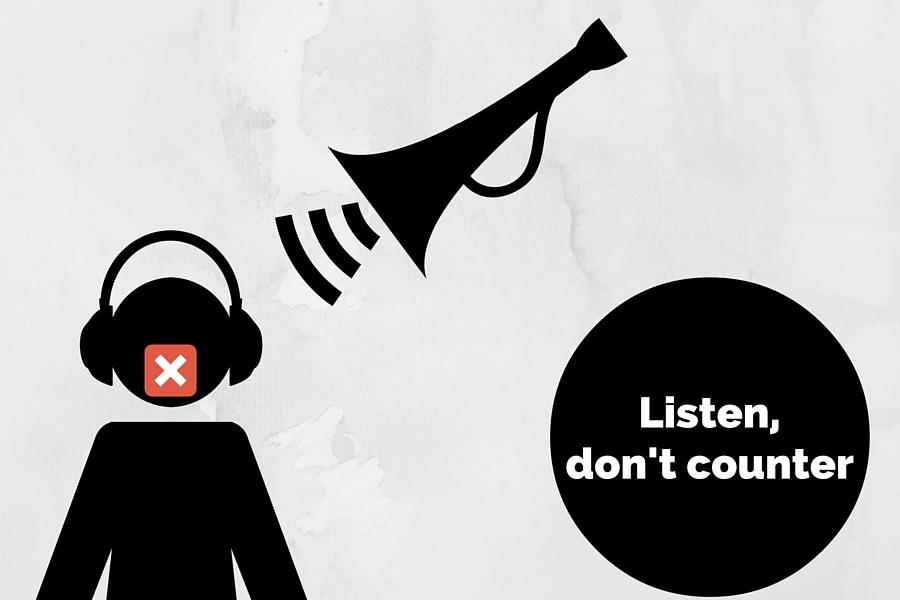Listen don’t counter
Our problems need solutions, not comparisons
Each person has his and her own path through life. It’s covered in tough, bumpy rocks, but decorated with rewarding, scenic views. Whenever a person stumbles across a problem, it is almost an instinct for others to minimize their struggles against the endless, negative comparison of every worst-case scenario. Particularly, in the stress-containing environment of public high schools, the pressure on students is often ignored, because the severity doesn’t compare to those who are at the wrong end of the stick.
This dismissive attitude is common when someone candidly confesses the frustration on their mind, and instead of caring, the person listening begins to lecture about how life could be worse. Even in the rare situations where the person means well, they instantly worsen the other’s already delicate spirit. Occasionally, these comparisons really do prove perspective, but most of the time they only multiply the frustration.
In the walls of this very school, I’ve often misconstrued this act of kindness as a challenge to find who deserves the most pity. I see students in class sighing, “I have such a bad headache right now … I can’t concentrate” and in response, their friends countering, “I’ve had headaches for the past two weeks, plus… I failed a test. You’ll be fine.” Unless the friend’s comment was filled with empathy or helped with the situation, there was no reason to say something that could create a barrier of negativity.
I can’t see why people would now want to express how bad the odds are against them instead of talking about what they did to address the problem. They may intend to send a message that says “I feel you” but it might end up discouraging the person in trouble. By continuing to express how the problem is continuing to prick them like a stubborn thorn, it implies that a solution for their problem still hasn’t been found, disheartening the person who is currently striving to overcome their problem.
The need to show that “I have it worse than you” is something I’ve never understood, usually people want happiness in their lives but this proves otherwise. It’s a competition, where the winner has dealt with more losses than victories in his or her life.
There have been instances where I have had my complaints of poor grades or lack of intellect dismissed by friends who were higher in intelligence and had more mild wounds. It’s funny how they consoled me briefly over my 90, before sprinting into a complaint about their “terrible, unacceptable” 98.
Instead of worsening the already sensitive situation, a friend should use their experience as a tool to create possible solutions rather than to draw a comparison to prove why the problem isn’t that bad. They need to say “this is what you can do” rather than “there’s been worse.” My friends should have used their 98 to inspire me to do better rather than trashing that grade while I had it worse. They could have used their intelligence to calculate what I needed to do instead of draft 100 reasons why they didn’t deserve such an inaccurate average.
It takes a lot of courage to admit that something is wrong in a person’s life. And when someone else reacts by degrading its severity and then expressing their own “worse” problems, they might as well crush all hope and confidence in their hands in front of the person seeking for help.

Senior Yusra Waris is the editor-in-chief and this is her fourth year on staff. She enjoys watching old Disney movies, traveling, and playing with her...



